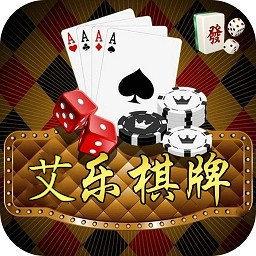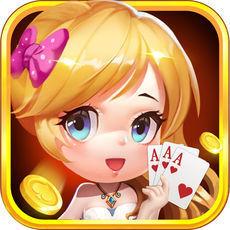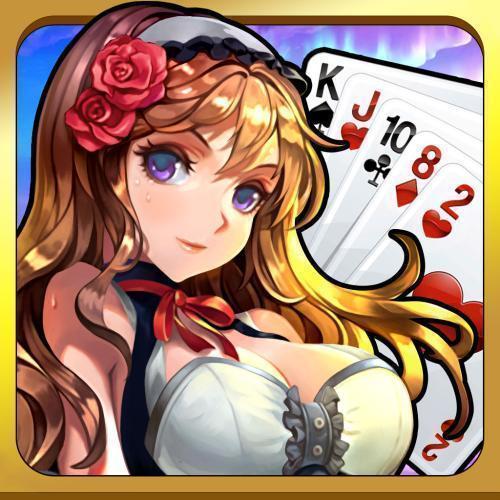
Aile Chess & Cards (Apple version) is a professional and reliable chess and card game. It boasts a diverse welfare system, offering generous daily coin rewards for players. The game has a low entry barrier, allowing for instant matchmaking with teammates. Enjoy 24/7 competition! Download now if you're interested!
1. A diverse benefits system: generous gold coin rewards await you for registration, login, online activities, and completing tasks!
2. We provide professional and secure banking services, ensuring the safety of your account funds 24 hours a day.
3. Low entry barrier, quick matchmaking, and a smooth, intense battle experience.
4. Enjoy free access to a wide variety of card and board games, with a rich selection of high-quality games available.
5. The operation is smooth and simple, easy to learn, and you can master it after a few rounds.
6. Win amazing prizes and discover many mysterious game elements – don't miss out on this incredible value!
Fair and just gameplay, where victory or defeat depends entirely on individual skill;
Log in every day to receive various benefits; you can play easily and enjoyably without spending any money.
Our 24/7 customer service team is here to provide you with attentive service and ensure that your problems are resolved promptly.
Top-tier gaming specs and stunning graphics deliver a visual feast!
I. Cards
01
Guandan uses two standard decks of playing cards, divided into four suits: spades, hearts, diamonds, and clubs, plus two jokers. A full deck consists of 26 cards of each suit (2 of each of the following suits: 2, 3, 4, 5, 6, 7, 8, 9, 10, J, Q, K, A), plus two jokers each, for a total of 108 cards.
02
The entire deck of cards is dealt to the four players at a table in turn. Each player should hold a total of 27 cards, which is called a full hand.
03
A game of cards is played by four players at a table. From the moment they draw their first card until three players have played all their cards in turn, the players are ranked as the first, second, and third in the game, and the last player to finish. Alternatively, if a "double loss" occurs (where two players from the same side win the first and second place), then the game naturally ends.
04
A hand is a series of cards played by a player in one go.
05
The process of four players taking turns playing cards according to the card type they have led, and progressively suppressing each other, is called a round. In a round, some players may pass. The round ends when three players pass without playing a card in a row.
06
The first card played in each round is called the lead card.
II. Players
A table of four players consists of two partners, each forming one team. The player is their own partner (or "same player"), their partner opposite them is their "opposite player" (or "opposite player"), their opponent to their left is their "upper player" (or "upper player"), and their opponent to their right is their "lower player" (or "lower player"). The player's own partner and their "opposite player" are considered their own team, while the upper and lower players are considered their opponents. In a hand of cards, the order in which players finish their hands is referred to as "first place," "second place," "third place," and "last place." If two players on one team finish first and second, the opposing team is considered to have "double lower."
III. Offering and Returning Tiles
Before a round begins, the player downstream from the previous round must offer their highest-ranking card to the player upstream (except for the "Heart Advisor"). The player receiving the offer must return one card from their hand to the offeror, and then the player downstream plays a card. The card returned to their partner must be 10 or lower (including 10); the card returned to the opponent can be any card.
In a "double tribute" situation, both players on the downstream side should contribute to the upstream player's side, a process known as "double tribute." During double tribute, the upstream player takes the higher-ranking card and returns it to the player who contributed the higher-ranking card. The downstream player takes the lower-ranking card and returns it to the player who contributed the lower-ranking card. If both players contribute cards of the same rank, the tribute proceeds clockwise. When returning cards, they should be placed face down and returned counter-clockwise. After receiving their cards, both players reveal them simultaneously, and the player to the downstream player's right (the one to the upstream player's right) leads the play.
If the downstream player draws two Kings, they do not need to pay tribute (resisting tribute), and the first player takes the lead. In the case of double tribute, if the two downstream players each draw one King or either side draws two Kings, neither player needs to pay tribute, and the first player takes the lead.
IV. Upgrade
Only the team that finishes first can be promoted. The number of promotions for the team that finishes first is determined by the different outcomes of their partner: finishing second, third, or last.
If the first-place player's partner is the second-place player (double loser), the first-place player advances 3 levels; if they are the third-place player, they advance 2 levels; if they are the last-place player, they advance 1 level. Each hand's cards are ranked from 2 to A in ascending order, including 2, 3, 4, 5, 6, 7, 8, 9, 10, J, Q, K, A, and A+ (also known as A+), for a total of fourteen levels.
V. Card Types
Single card: Any single card.
A pair: Two cards of the same rank, but different suits, including two Jokers and two Aces.
Three Pairs (Wooden Board): Three consecutive pairs of tiles.
Three of a Kind (or Three Without): Three cards of the same rank.
Three of a Kind (Steel Plate): Two consecutive sets of three cards.
Three of a Kind (or Pair): A set of three identical pieces and a pair.
07
Straight (or mixed suit straight): Five consecutive single cards, regardless of suit.
08
Flush (Rocket): A straight flush with the same suit.
09
Bomb: Four or more cards of the same rank.
10
Four Heavenly Kings (Heavenly King Bomb): Two of each of the Big and Little Kings.
VI. Card Points and Card Rankings
The cards are arranged from highest to lowest as follows: Joker, Queen, Advisor, A, K, Q, J, 10, 9, 8, 7, 6, 5, 4, 3, 2.
For hand types such as single cards, pairs, three consecutive pairs, three of a kind, three consecutive cards of the same kind, straights, and straight flushes, the size is determined directly by the card values.
Three-of-a-kind: Only the size of the three identical cards is compared, not the size of the pairs they come with.
Bombs: Bombs can beat single cards, pairs, three-of-a-kind, three-of-a-kind with a pair, three consecutive pairs, consecutive three-of-a-kind, and straight flushes. Bombs with more cards can beat any bomb with fewer cards. Bombs with six or more cards can beat straight flushes.
Straight Flush: Compare card values. A straight flush can beat a bomb of up to 5 cards.
The Four Heavenly Kings: All four Jokers are played together as a single hand, forming the largest bomb that can beat any other card.
VII. Reporting the License Plate
When a player has 10 or fewer cards in their hand after playing a hand, they must declare the number of cards (only once per full hand).
VIII. Staff Officer
When the rank played is X, all cards of the same suit as the played X become advisors for that round. They are lower than the Joker and higher than the Ace (when the Ace is played, the Ace becomes the advisor). When the rank is X, the Heart X can be used as a wild card, called the Heart Advisor (commonly known as the Wild Card or Wild Card). The Heart Advisor can be used as any card type and suit, but cannot be used as the Joker.
IX. Game End and Game Result Determination in the Game-Counting System
The winner of a hand is determined by the level of advancement (the highest being "Pass A") of both players.
A hand ends when one player wins by passing an Ace. An Ace must be played; you cannot directly upgrade to a higher level by passing an Ace. However, a player must be the first to finish and the other must not be the last to finish for the hand to win; otherwise, the Ace must be played again.
[Hundred-Player Bullfight]
Single: Any card in your hand. Pair: Two cards of the same rank, suits can be different. Consecutive Pairs: Two or more consecutive pairs (e.g., 5566).
Three of a Kind with Two: Three cards of the same rank, plus two other cards (e.g., 55566, 55567). A Plane with Wings: Two or more consecutive three of a kind (e.g., 5556667788, qqQKKK8899).
A straight is five or more cards in consecutive rank (e.g., 3456789, 10JQKA, etc.). A bomb is four or more cards of the same rank (e.g., 6666, 8888).
Multipliers: In low-multiplier rooms, no bull to bull six - 1x, bull seven, bull eight, bull nine - 2x, bull bull - 3x, four bombs - 4x, five flower bull - 5x; In high-multiplier rooms, no bull, bull one - 1x, bull two to bull nine - 2, 3, 4, 5, 6, 7, 8, 9x respectively, bull bull, four bombs, and five flower bull are all 10x.
1. High-quality, ethical card and board games, highly praised by card players;
2. Social module, allowing you to make friends in card and board games;
3. Start your exciting daily life with chess and card games, bringing back tons of surprises and fun.
Dou Dizhu (a popular Chinese card game) tips
First, maintain a civilized gaming attitude. Understand that Dou Dizhu is just a game; you don't lose your house or land. Don't get angry and curse when you lose; let's all play the game in a civilized manner.
Secondly, it cultivates a good mood and helps you maintain a positive outlook. Avoid playing Dou Dizhu when you don't have enough time or are in the right mood, as your emotions may impair your judgment.
Third, there are non-intellectual factors in Dou Dizhu. That is to say, there are certain hands that even the most skilled player cannot win.
Fourth, excellent teamwork is key. In my personal experience playing Dou Dizhu (a popular Chinese card game), the two most important factors are the cards themselves and teamwork. No matter how good your cards are or how accurately you remember them, you'll still lose if your teamwork is poor! I remember one game in particular: the player before me was the landlord, and he had already played three bombs. The landlord only had one card left to trigger the alarm, but this player before me had a pair and a card. He didn't play the pair, but instead played the card, and the landlord won! I was so angry I almost fainted! If you find that your teamwork is poor, change tables as soon as possible. Don't be afraid to change tables until you have good teamwork.
Fifth, pay close attention to the third key card. The key cards to watch are: 7, 9, and 2. The 7 relates to whether all the lower-ranking cards below 7 can be played together; the 9 relates to how long a chain can be formed; and you need to know how many 2s have been played! The Jokers aren't key cards, because anyone who plays Dou Dizhu knows to keep an eye on them.
Sixth, be discerning and avoid taking too many cards. Those who blindly take cards will almost certainly lose more than they win, because it's a two-against-one game, and winning is rare. As the saying goes, "A wise man knows when to yield," which is exactly the point.
Seventh, don't chat too much. Try to chat as little as possible while playing cards; if you're going to chat, don't play, and if you're going to play, don't chat.
Eighth, keep track of the number of cards played. Some people might think, "Isn't this tiring?" It's the same with anything; to do something well, you have to put in the effort. If you're the landlord, or the player to your left is the landlord, and you have a bomb in your hand, you should mainly keep track of how many cards the player to your left has already played. For the player to your right, you need to keep even closer track.
Ninth, never attempt to escape intentionally. Some people like to escape intentionally, but escaping results in double the points deducted, which is not worth it for yourself.
Dou Dizhu Strategy Guide
1. Introduction to the origin of the gameplay:
Dou Dizhu originated in Hanyang, Wuhan, Hubei Province, my country. It's a card game that evolved from and developed from Run Fast. Initially, it wasn't called Dou Dizhu, but rather Two Against One. At the beginning, there were no hidden cards; each player received 18 cards, and one player could draw one card from each of the other two players. Over time, it gradually evolved into the Dou Dizhu we know today.
2. Basic gameplay rules:
1) Number of players: three.
2) Number of cards: A standard deck of 54 playing cards is used. Each player receives 17 cards, and the remaining three cards are given to the landlord player after the landlord player is determined.
3) Game Teams: The landlord player is a single player, and the other two players form a peasant team. It is a one-on-two game, and the two sides fight independently.
3. Main gameplay process:
1) Bidding: When playing three-player Dou Dizhu online, the shuffling, arranging, and dealing of cards are all done automatically by the system. Therefore, the first step for players is actually bidding. Players can choose to bid or pass. If they choose to bid, their bid must be higher than the bid of the previous player. The player who bids three points becomes the landlord. If no one bids three points, the player with the highest bid automatically becomes the landlord.
2) Playing Cards: The card-playing process is the main part of the Dou Dizhu game and also the period when most Dou Dizhu skills are applied. In Dou Dizhu, the landlord player has the right to play first in each round. If a player plays all their cards, the game ends and that player's side wins.
Related Articles

Video playback|0people downloaded
View Details
Video playback|0people downloaded
View Details
Card games|0people downloaded
View Details
Card games|0people downloaded
View Details
Card games|0people downloaded
View Details
Card games|0people downloaded
View Details
Card games|0people downloaded
View Details
Card games|0people downloaded
View Details
Card games|0people downloaded
View Details
Card games|0people downloaded
View Details